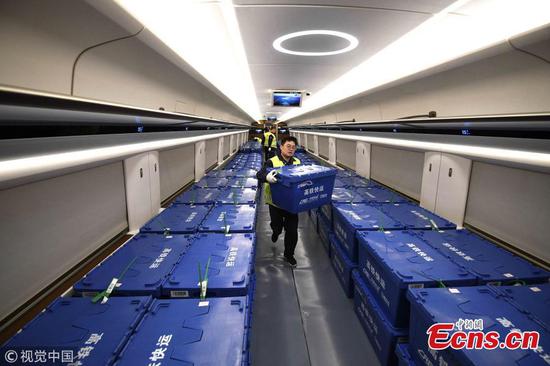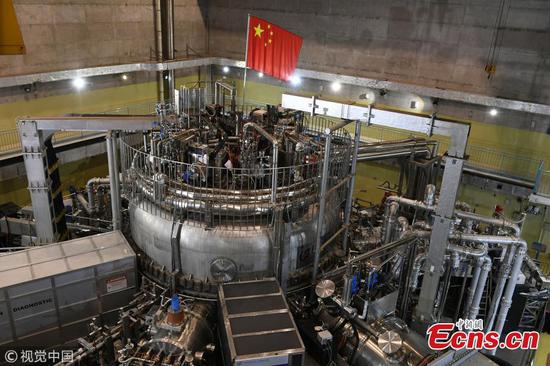China's large number of fintech companies has helped the country to take the lead worldwide in developing the industry, according to the Global Fintech Hub Report released on Wednesday during the Money 20/20 China conference.
Five of the top 10 global fintech hubs are in China, and Chinese cities comprise seven out of the top 30, the report showed.
It was jointly released by the Academy of Internet Finance at Zhejiang University, the Center for Alternative Finance at the University of Cambridge, and the Zhejiang Association of Internet Finance.
Ben Shenglin, dean of the Academy of Internet Finance at Zhejiang University, said consumer demand, technology advances, policies and the regulatory environment are the key drivers for the development of the country's fintech industry.
Beijing was crowned as top of the list among all the 70 surveyed global cities.
A total of 58 Beijing-based fintech companies have seen their respective cumulative financing top $50 million, dislodging all the other polled cities. Lead by JD Finance, Du Xiaoman Financial and Qudian, the combined financing of the 58 companies has reached over $21 billion.
Shanghai came in at No 5 on the list, the second-highest among Chinese cities, with 26 fintech companies based in the city reporting respective accumulative financing of over $50 million.
As a global financial center, the added value of the financial industry contributed 17 percent to Shanghai's GDP last year, providing the infrastructure and environment for the development of fintech companies, according to the report.
Hangzhou in Zhejiang province-the home of e-commerce juggernaut Alibaba and its financial arm Ant Financial-stood just one position below Shanghai on the list. Although only 13 fintech companies in the city have seen their respective accumulative financing reaching over $50 million, their total financing value has topped $23.9 billion, the highest worldwide.
Furthermore, Hangzhou leads the world in terms of fintech consumer experience, with about 91.5 percent of the city's population using fintech products and services.
Ye Jinwu, founder and chairman of Hangzhou-based fintech company Ying Ying Group, said that Hangzhou still lags behind first-tier Chinese cities, such as Beijing and Shanghai, in terms of the size of its fintech industry.
But, the city has demonstrated unparalleled vibrancy in terms of business activity and entrepreneurship, and the sufficient talent supply in the city is an important reason for the large number of fintech startups in Hangzhou, he said.
According to Hangzhou's Party secretary Zhou Jiangyong, total sales registered on all online platforms in Hangzhou this year will exceed 1 trillion yuan ($143.9 billion) this year, contributing over 50 percent of the city's annual economic growth.


















































